


2024 Summer - Study Tour Reflections on Clinical Medicine at the University of Erlangen-Nuremberg, Germany (Excerpt)
- Student Zhong
As I sat on the Air China flight and looked out at the view changing from the dark runway to the clustered houses and vast, orderly green fields below, I couldn’t help but reflect on how my journey was coming to a close. The trip was drawing to a satisfying conclusion. Exhausted, I fell into a deep sleep on the return flight...
In my dream, I opened a classic-looking Polaroid camera: I saw the pale red sunset at 9 p.m. in Germany; I saw seats on buses reserved for strollers and the elderly; I saw Gothic buildings adorned with religious paintings and statues, and the little boy sitting on a door frame gazing into the distance. I saw the Siemens Medical Museum, with its early X-ray machine resembling a guillotine, and the various hearing aids and pacemakers behind glass displays. I heard the waves clashing with skateboards in the park, and the warning bell signaling that a train was approaching. I heard joyful music celebrating a child’s fourth birthday in the park, and the quiet stillness in the Frankfurt University library, where white roses bloomed silently in the medical faculty’s rose garden. Lastly, I heard Professor Bisan asking us, “How’s life here? Are you getting used to it?” These snapshots appeared on the yellowing wallpaper of my mind, connected by red threads tightly binding them together.
As the camera panned up, wheels screeched against the tracks as we, along with people of different backgrounds, skin colors, and languages, sat on the subway heading to the University of Frankfurt. Unlike universities back home, Frankfurt University is spread across a district rather than centered around a main gate. Each faculty building has its own distinctive character. One structure that left a deep impression on me near the cafeteria at the Faculty of Economics featured two figures made up of various language scripts embracing, symbolizing the university’s embrace of people from different countries, languages, and cultures. We passed event venues, libraries, and large lecture halls, while cyclists frequently whizzed by. In front of the library, people were sunbathing and chatting. Inside, the library was well-stocked, and each wooden table had a small, functional lamp, with ample space between seats, offering privacy and comfort. While dining at the cafeteria, I saw people I had only previously seen in movies: a blonde, blue-eyed couple eating under a tree with their dog, a girl with dreadlocks and dark skin discussing a topic with a brunette with brown eyes in English, a group of friends enjoying a meal together, and even bees attracted by the sweet food.
The camera moved sideways, revealing the medical faculty of Frankfurt University, which is connected to the hospital. The hospital was well-organized, and the first thing I noticed upon entering the lobby was the long, gentle ramp leading to the second floor, designed for accessibility, along with bright lights suspended overhead, as if thrown out in motion. This design, combining functionality and human-centered care, left an impression on me. After walking past the circular red-and-white rose garden, we visited the hands-on learning area for medical students. In the corridor, there were two colorful skeleton models wearing hats, and in one room, various molds were displayed in glass cabinets for different purposes. Another room had several ultrasound machines for students to practice on, offering medical students a solid foundation of practical skills to complement their theoretical knowledge. I was both amazed and envious. Before visiting Nuremberg’s hospital, I had never imagined that doctors from all over the world would gather in one place to help those suffering from illness. Despite their different backgrounds, they communicated in a shared language and had the same noble mission of saving lives. Germany has long implemented a social health insurance system, with statutory health insurance as the primary model, supplemented by private insurance, covering almost the entire population. Outpatient services are mainly provided by family doctors, while inpatient services are handled by public and non-profit private hospitals, achieving broad coverage, high quality, and generous benefits. As our country continues to refine its own healthcare system, I hope that in the future, our system will evolve to better serve both the public and healthcare professionals.
The camera shifted downward, revealing us sitting and listening to Professor Bisan explaining research methods and thinking. She detailed her experimental project, from posing a question to forming a hypothesis, designing and conducting experiments, and finally publishing a paper. This process involved more than a few lines on a PowerPoint slide—it required meticulous planning, execution, and perseverance. At another moment, Dr. Wang, who specializes in psychiatry, explained the steps to becoming a doctor in Germany, emphasizing the importance of overcoming language barriers. Communication is key to maintaining a good relationship between doctor and patient. Throughout these three weeks, whether shopping, dining, or attending classes, I had to communicate with staff, teachers, and others, and the English I had studied for so many years finally came in handy. English isn’t just an exam subject; it’s a culture and a practical tool for better understanding others and living well. Being able to practice speaking English was a precious opportunity for me.
Passion and dreams are lifelong pursuits, and this journey rekindled my desire to study medicine. As the plane flew above the clouds, I knew my future would be filled with endless possibilities. In the confined room of my limited knowledge, another door had opened, and on the other side, people continued to ask “why.” Whether captured in pictures or words, this journey will become an indelible part of my memories. I would like to thank my fellow travelers and teachers once again. Thanks to everyone’s cooperation and mutual support, this trip has been a treasured experience for me.
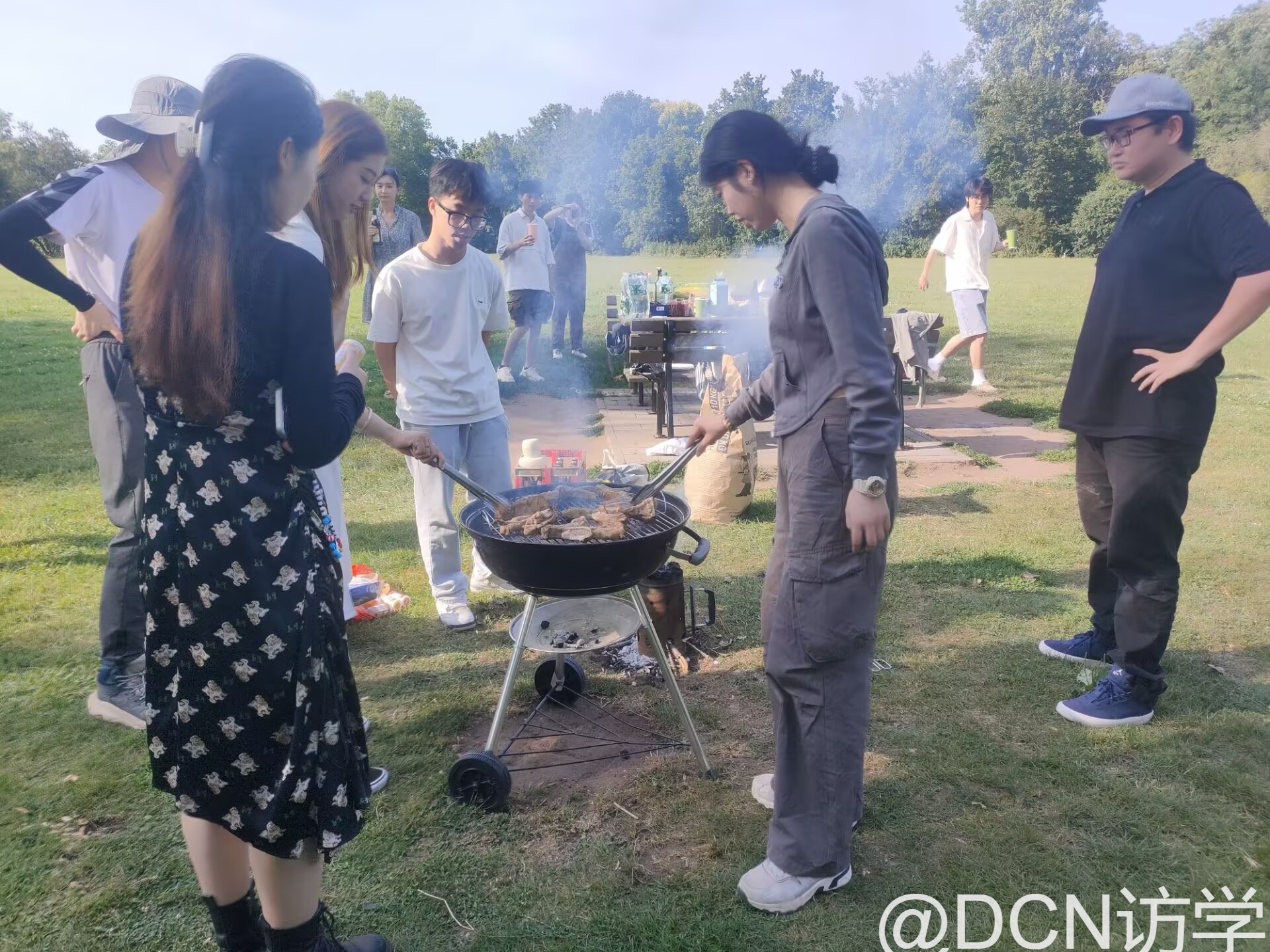
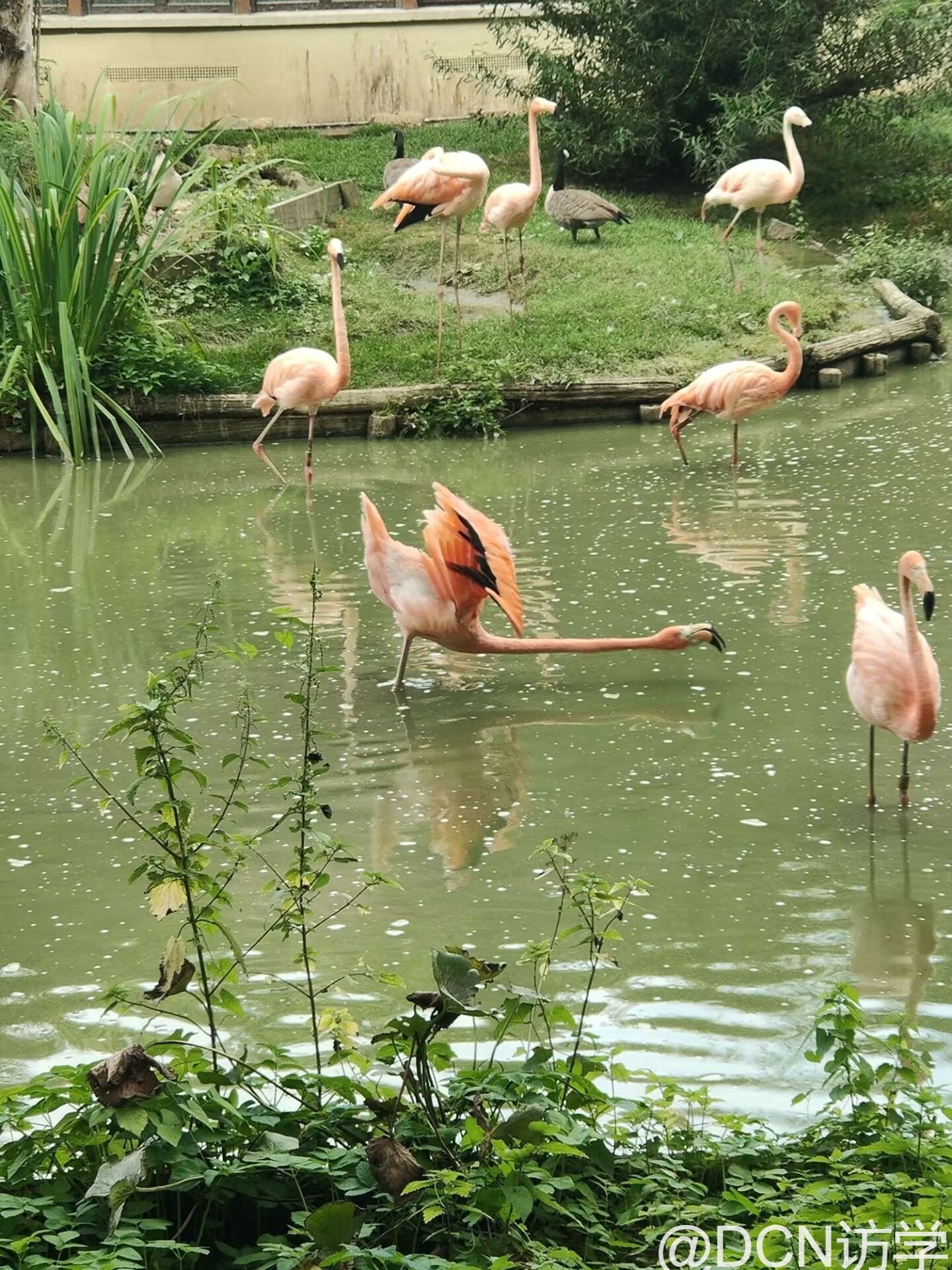
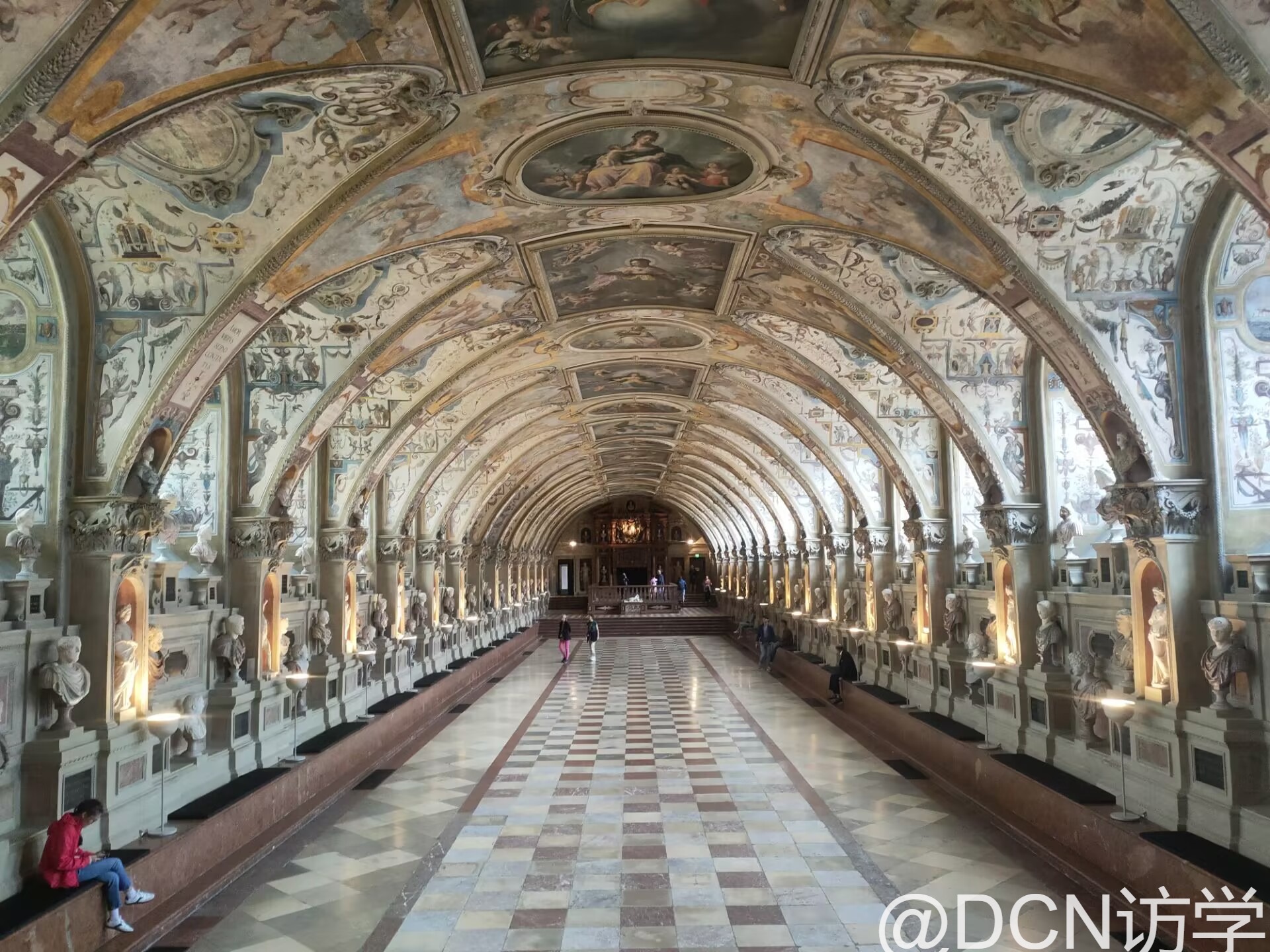
- Student He
In August 2024, I had the privilege of setting foot on the charming and intellectually rich land of Germany, embarking on an unforgettable professional study tour. This experience was like a brilliant constellation, leaving a profound and radiant mark on my life.
Upon arriving in Germany, I was immediately captivated by the clean streets, the perfect blend of ancient and modern architecture, and the orderly social atmosphere. The cities in Germany are like a heavy history book, with every monument telling stories of the past, while the modern facilities reflect the nation’s innovation and vitality.
In terms of professional learning, I was deeply impressed by Germany’s educational system and academic environment. The professors here are top experts in their fields, possessing not only deep academic knowledge but also excellent teaching skills. In the classroom, they emphasized an inquiry-based approach, encouraging students to think critically and ask bold questions. Rather than providing direct answers, they guided us to explore and research solutions independently. This teaching method greatly stimulated my interest and initiative in learning, helping me develop the ability to think critically and solve problems on my own.
In the laboratory, we were struck by the advanced equipment, well-organized management systems, and the attention to detail that reflected a profound sense of human care. The meticulous pursuit of detail and strict quality control by German researchers left a lasting impression on me. Every experimental step was carefully designed and repeatedly tested to ensure the accuracy and reliability of the data. As I listened to the German professors describe the journey from experiments to published papers, I learned many new experimental techniques and research methods. Their innovative thinking and teamwork spirit made me realize that collaboration and innovation are crucial in the scientific research journey.
This trip was filled with a wide range of academic activities. Various themed seminars and academic exchange events gave me the opportunity to be exposed to the latest research findings and academic ideas from around the world. Through these activities, I met scholars and colleagues from different countries, exchanging insights and broadening my academic horizons. From these exchanges, I gained a deeper understanding of the research landscape and development trends in the same field across different countries, giving me clearer guidance for my future plans.
In addition to academic learning, daily life in Germany also left a deep impression on me. Germans’ pursuit of quality in life is reflected in every aspect. They pay great attention to healthy and nutritious eating, often purchasing fresh ingredients and cooking their own meals. In German restaurants, you can enjoy a variety of delicious traditional dishes, such as sausages, pork knuckles, and beer. Meanwhile, Germany’s coffee culture is also very strong, with countless cafés scattered across streets and alleys, making them popular spots for socializing and relaxation.
Germans also have a great love for sports and outdoor activities. Whether running in the park, cycling, or hiking in the mountains, their energetic figures can be seen everywhere. This healthy lifestyle made me realize that while pursuing professional development, it is equally important not to neglect physical and mental well-being. Only by maintaining a good physical state and a positive mindset can one better tackle the challenges of study and work.
During these 20 days, I noticed that every task was treated with great seriousness, and every detail was handled meticulously. This rigorous attitude was educational for me and made me pay more attention to detail and quality in my future work and studies. Additionally, forming meaningful connections with like-minded mentors and friends was one of the most valuable takeaways from this trip. Their companionship made my journey even more enjoyable and heartwarming.
Reflecting on this study tour in Germany, I gained more than just professional knowledge and skills—I also developed a new way of thinking and a fresh approach to life. This experience strengthened my resolve to continue progressing on my professional path and filled me with confidence and anticipation for the future. I believe that this study tour will become a valuable asset in my life, motivating me to keep striving and pursuing excellence in the days ahead.
Lastly, I want to express my gratitude to the school and professors who gave me this opportunity for the study tour, as well as to the friends who supported and helped me during my time in Germany. It is thanks to all of you that my study tour in Germany became such a remarkable and unforgettable experience. I will carry this gratitude with me as I continue moving forward, working hard to achieve my life goals.
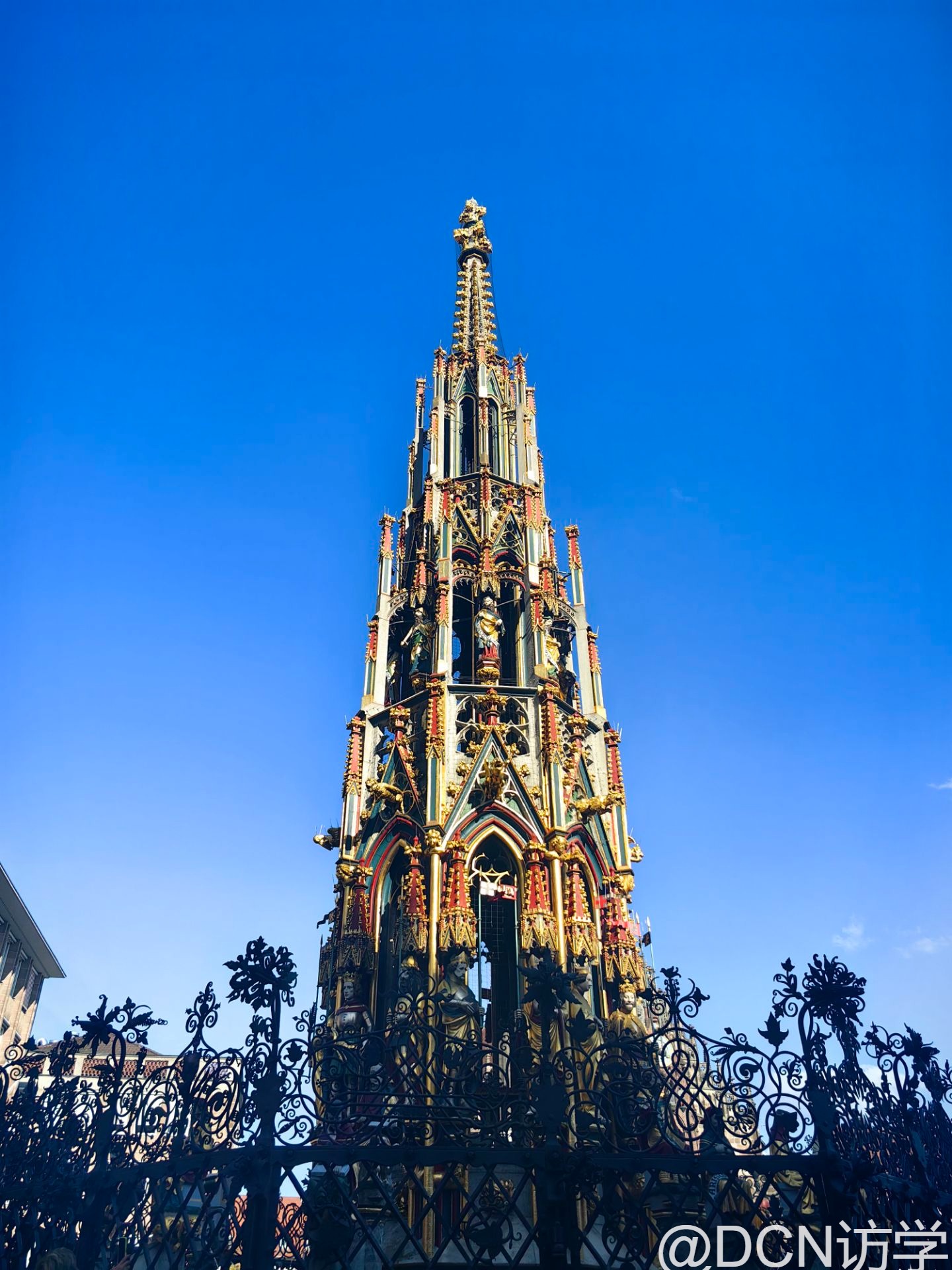
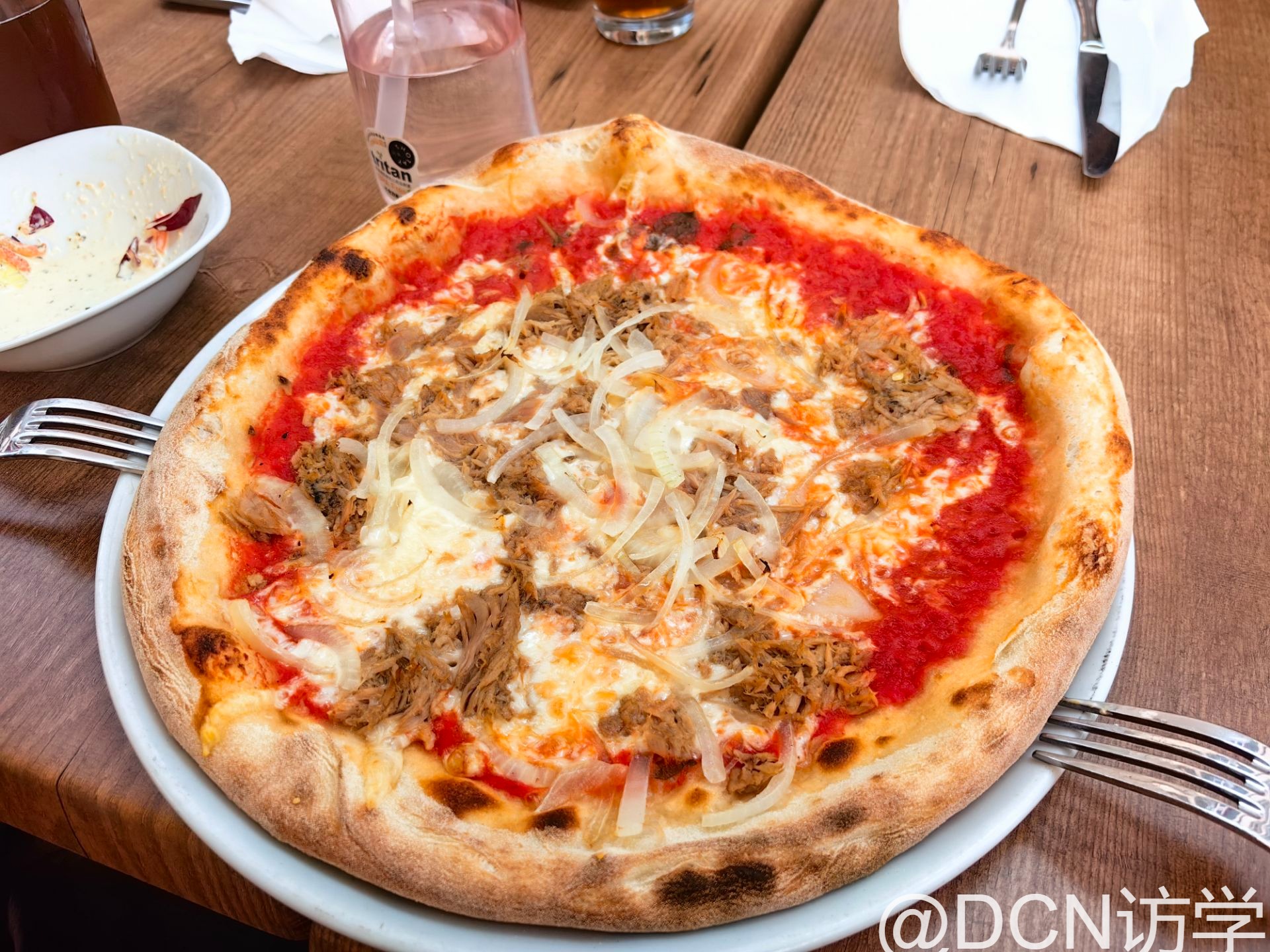
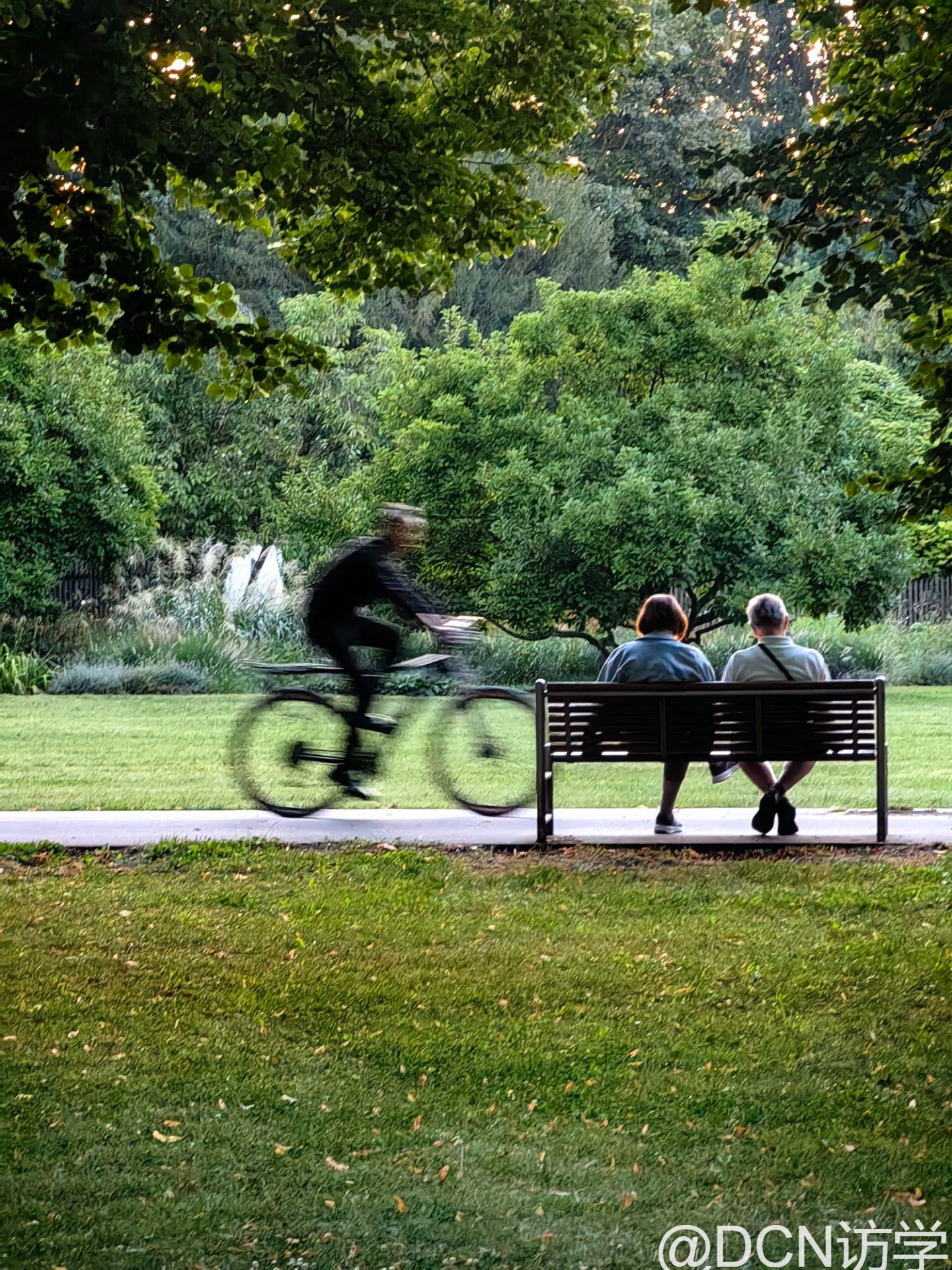
- Student Wang
This 21-day study tour in Germany was like a wonderful adventure full of surprises and enlightenment. This experience not only broadened my horizons but also left a lasting impression on me. Reflecting on this study tour, I gained not only knowledge and experience but also a new way of thinking and a fresh approach to life.
In terms of academics, one of the most immediate benefits was improving my English speaking skills. Language is a tool we constantly needed, whether for studying or daily life. In Germany, English was frequently used, which significantly enhanced my listening and speaking abilities and made me more aware of the importance of learning English. Additionally, I gained more professional knowledge. Germany has a high level of education and abundant academic resources in fields like technology and medicine. By visiting institutions such as Frankfurt University, laboratories, research institutions, and museums, and engaging with German professors and students, I learned about their academic developments and research outcomes, broadening my academic perspective and sparking new interests. It even provided me with academic inspiration and insights. Moreover, the small-class teaching format increased opportunities for interaction with professors, helping me better understand the material and making learning more relaxed and clear. Through these days of exchanges, I also learned about different cultures, values, and lifestyles. Germany’s dual education system left a strong impression on me as they emphasize the integration of theory and practice, fostering students' independent thinking and innovative spirit. During visits to schools and interactions with local students, I deeply felt the advantages of this educational approach, which not only equips students with solid knowledge but also enhances their problem-solving abilities and teamwork skills. I also gained a better understanding of their tax policies, healthcare systems, and other aspects of their political and economic culture.
In terms of daily life, this experience honed my problem-solving abilities. The study tour required us to leave our familiar environment, meaning we had to face various external challenges and issues. For example, the trip was accompanied by transportation delays from the very first day. Initially, I felt frustrated, but over time, I learned to face such issues with a calm mindset. I also learned how to use public transportation and find affordable goods, all of which helped me develop independent thinking and problem-solving skills. Additionally, Germany's culture is rich and diverse, excelling in fields like music, art, and literature. Visiting museums and art exhibitions allowed me to appreciate the depth and richness of German culture. The German lifestyle is also something worth learning from. They emphasize quality of life, love nature, and enjoy outdoor activities. Their active and healthy approach to life made me realize the importance of learning to relax and enjoy life amidst a busy schedule. Lastly, I deeply admired the German people’s rigorous work ethic. Whether in factories or offices, everyone took their work seriously and responsibly. Their attention to detail and strict quality control made "Made in Germany" synonymous with high quality. This rigorous attitude was also evident in their daily lives, as their respect for and adherence to rules could be seen everywhere.
On a personal level, this experience had a profound impact. It not only promoted personal growth but also helped me better understand my field of study and clarify my future career plans. Additionally, I had the chance to meet excellent teachers and classmates, as well as many talented and interesting individuals. A study tour is a unique life experience, exposing me to different cultures and ways of life earlier, enriching my knowledge and broadening my life experiences. These experiences will become valuable assets and have a positive impact on my future development.
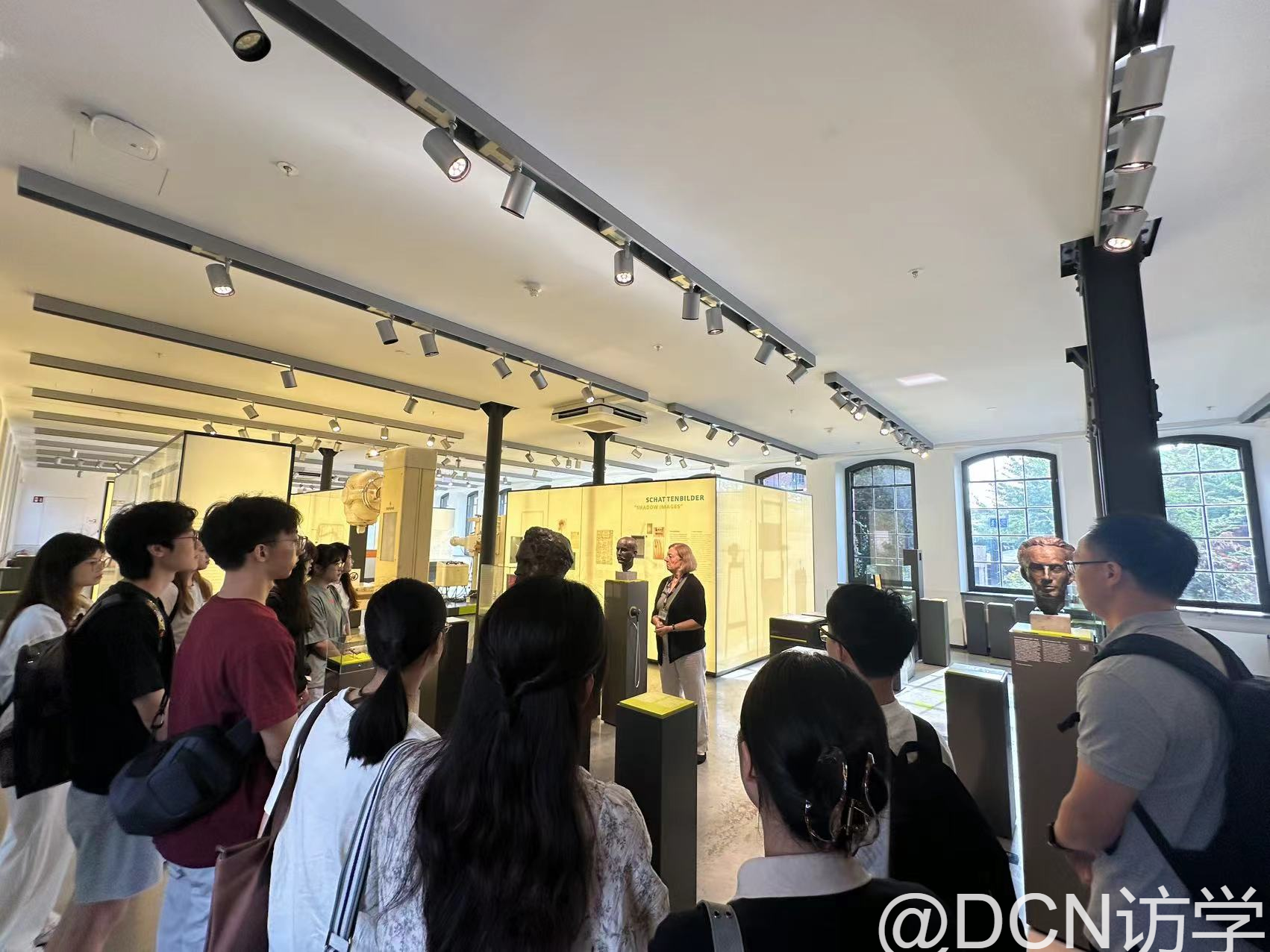
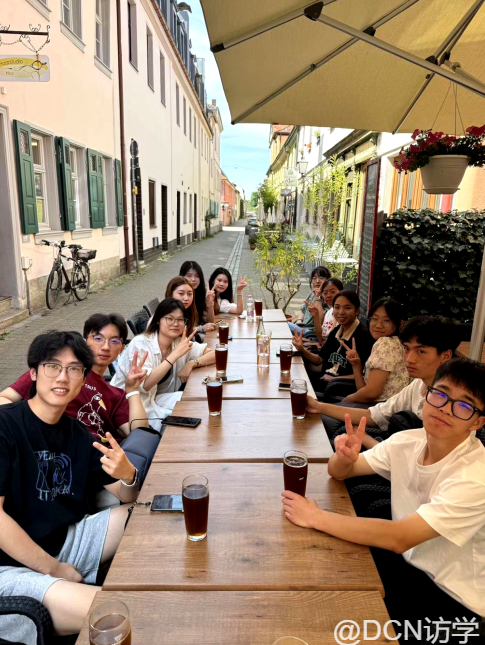
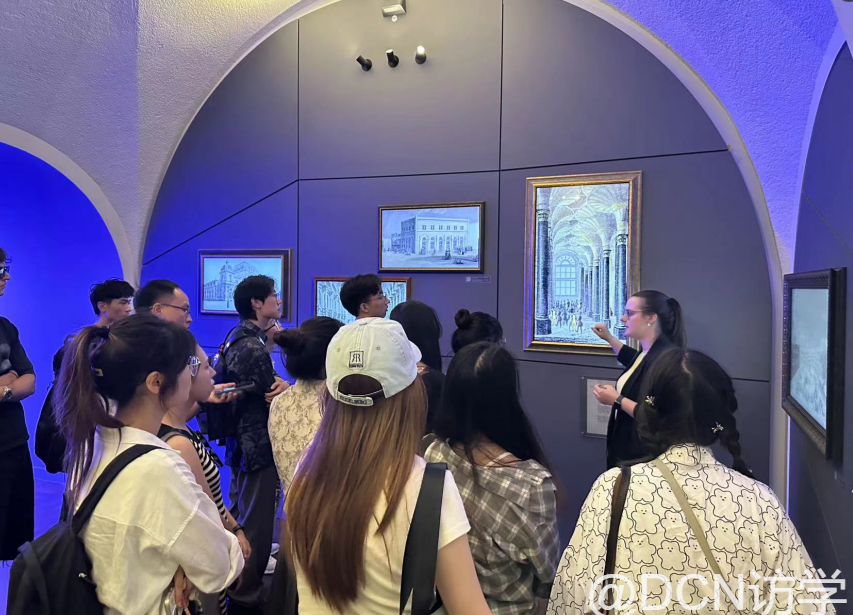
- Student Xie
It's been a few days since I returned from the study tour in Germany, yet the memories of the trip remain fresh and unforgettable. As a university student, I feel incredibly honored to have participated in this overseas study program organized by the school. This was my first time traveling to Europe, where I, along with other classmates, took part in a three-week medical exchange program in Germany. During this short time, we not only visited renowned universities and hospitals but also experienced Germany’s unique culture and toured many famous landmarks. This overseas study experience left a deep impression on me and was immensely rewarding.
Next, I will share my reflections on this journey from two aspects.
Firstly, during our 20 days in Germany, we gradually integrated into the local lifestyle, so I’d like to start by sharing my thoughts on life in Germany. The food, clothing, housing, and transportation in Germany are quite different from those in China. Their diet is diverse, and you can find Italian, Spanish, German, and various Asian restaurants everywhere. However, we were surprised to find that Italian restaurants in Germany were quite different from those in China. We had disappointing experiences in Italian restaurants about four or five times in Germany, yet Italian food in China is delicious. A local teacher explained to us that Italian restaurants in China are adapted to suit local tastes, while in Germany, the dishes might not appeal as much to Chinese people due to differences in the historical development of their cuisine. German food history isn’t as long as China’s, and their geographical and living environments have shaped vastly different eating habits. Additionally, the weather in Germany is peculiar. Almost no one uses an umbrella in the sun, but using an umbrella on sunny days has become a habit for many Chinese people. The difference lies in the fact that Germany has less than a month of temperatures over 30°C each year, and it rains frequently, so they cherish sunny days, seeing it as a way to enjoy the sun and nature.
Secondly, the main purpose of the study tour was, of course, learning. Now, I’ll share what I learned during the trip from an academic perspective. I will divide my reflections into two parts. The first is about the humanities: During our time in Germany, we frequently took public transportation to visit famous landmarks such as the Frankfurt Stock Exchange, Siemens Museum, and the Nuremberg Trials Memorial Courtroom. Germany’s public transportation and urban infrastructure made me deeply aware of their care for special needs groups. Their buses are equipped with special air pressure systems that lower the bus when the doors open, making it easier for people in wheelchairs or with strollers to get on and off. In hospitals and tourist sites, ramps are designed with specific heights and lengths to truly accommodate special needs. This is an area where Germany excels compared to China. In many places in China, ramps for special needs individuals are so steep that even a healthy person in a wheelchair might struggle to ascend them. One particular moment that left a lasting impression was at the Nuremberg Trials Memorial Courtroom when the audio guide stated, "It is difficult to properly confront the past." This made me realize that Germany's success stems from its commitment to remembering history and acknowledging its past mistakes.
The second part relates to the medical knowledge I gained in Germany: We visited Frankfurt University’s affiliated hospital, Bamberg’s psychiatric hospital, learned about Heidelberg University’s medical school, and studied medical knowledge such as immunoprecipitation, WB, RT-PCR, immunofluorescence staining, and immunohistochemistry, as well as the process of writing and retrieving academic papers. We also gained insights into Germany’s social healthcare system, the training of doctors, and their salary structures. During classroom discussions, I realized how crucial English is as a communication tool. Whether interacting with teachers in class or communicating in daily life, mastering English is essential.
Finally, this trip was immensely rewarding. Not only did I expand my knowledge and increase my interest in medicine and English, but I also built valuable friendships and connections with teachers. I am deeply grateful to the school for giving me this opportunity, allowing me to meet so many outstanding peers. Thank you to everyone who accompanied me during these three weeks. Although the trip wasn’t long, life still has a long way to go. I wish everyone academic success and the best of luck in their careers and future medical journeys!
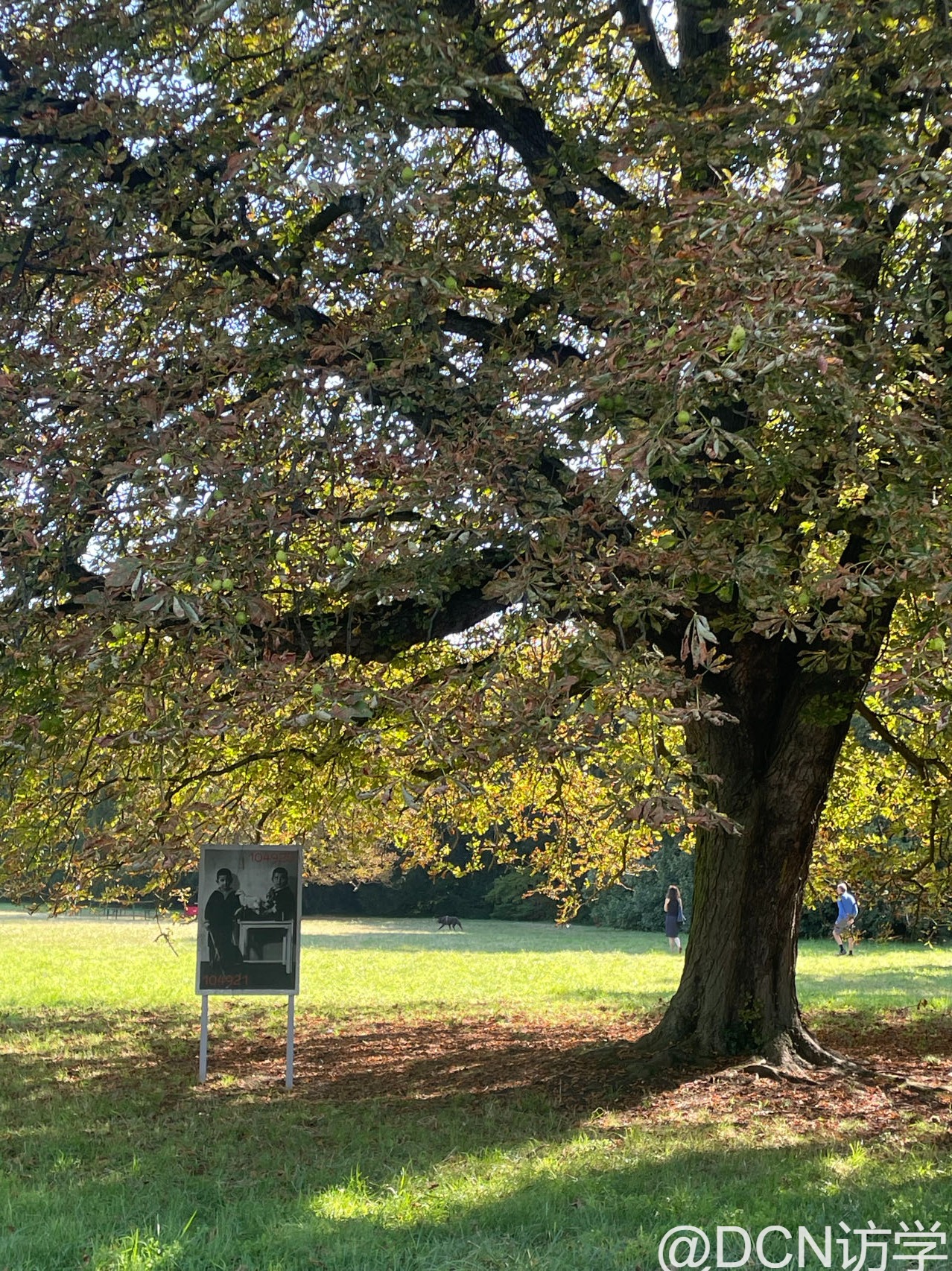
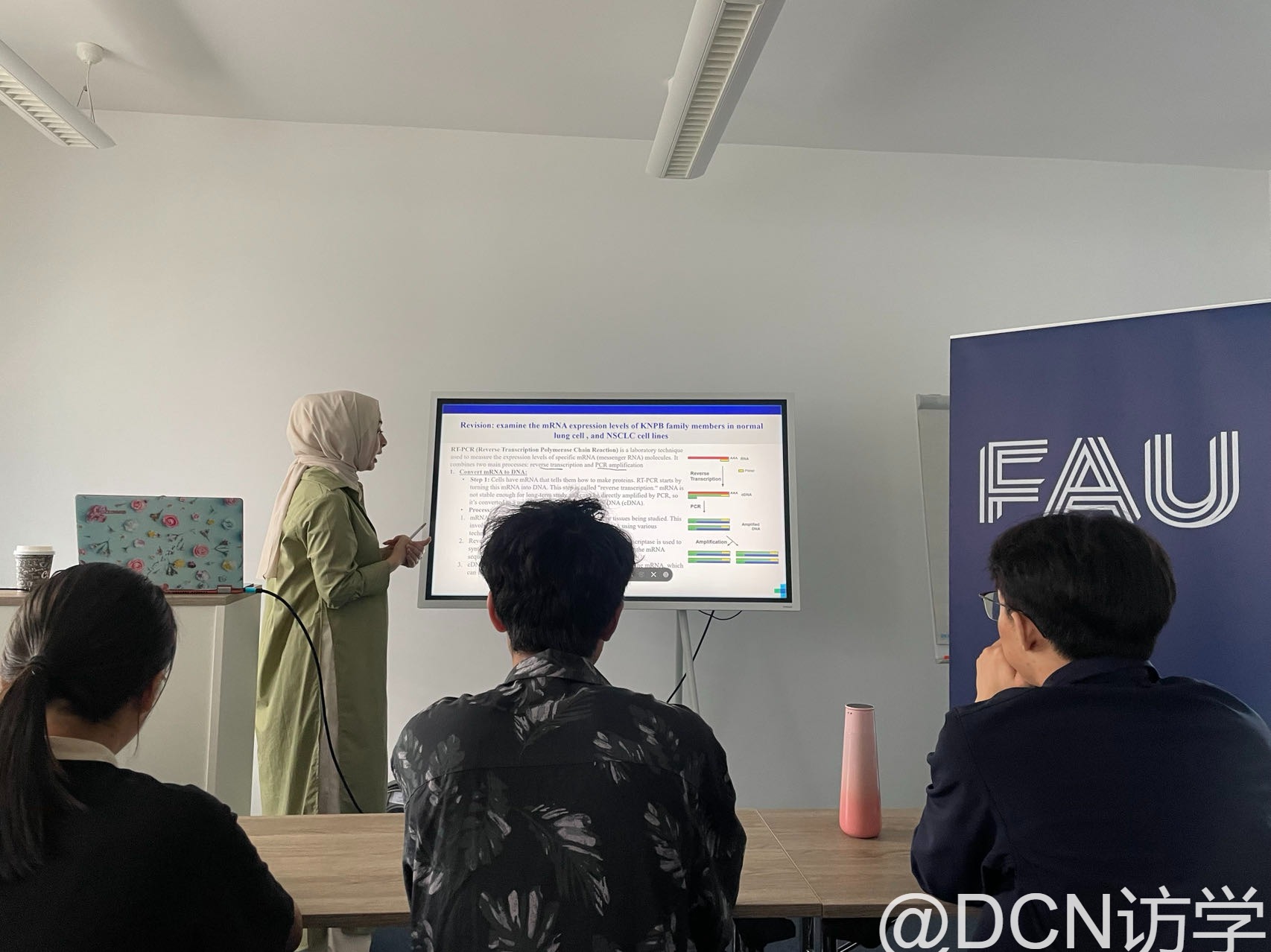
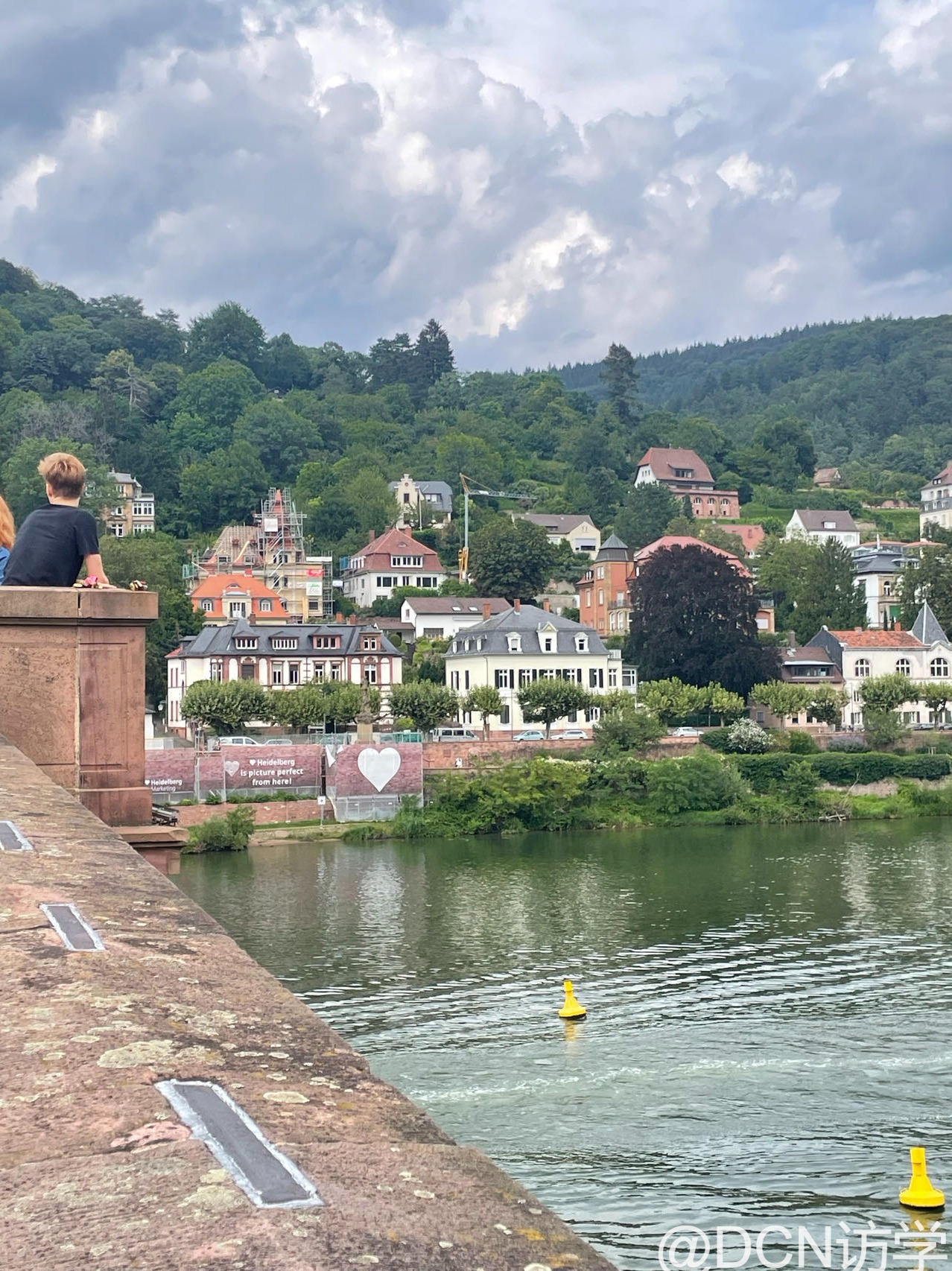
- Student Yang
For this summary of my thoughts on the 2024 Summer Medical Study Program in Germany, I will briefly cover my study tour experience, the gains from the program, and the life in Germany. Below is a short overview of these three aspects.
First, regarding the study tour experience, we transitioned from general travel and sightseeing at the beginning to understanding Germany's overall education and economic systems. We then delved deeper into Germany’s medical education system through classroom learning, visits to medical museums, and economic trade centers. The classroom content laid a solid foundation for future research and advanced studies.
Second, in terms of program gains, aside from the graduation certificate awarded based on the final exam and the teachers' evaluations, I believe that the most valuable takeaways from this German medical study program were beyond the tangible. From the initial emphasis on information-gathering skills—such as preparing for the trip, organizing visa materials, and discerning information during the journey—to ultimately being able to independently handle information processing, I consider this a significant improvement during these three weeks.
Lastly, regarding life in Germany, I was deeply struck by the differences between life in Germany and China. This includes differences in the cost of living, transportation methods, daily diet, and personal habits. Overall, I found it relatively easy to adapt. One of the biggest adjustments at first was dealing with the time difference, as Germany is six hours behind China. This required a bit more time to adjust upon arrival so that we could proceed with the itinerary smoothly.
After summarizing these three areas, I will now share some deeper reflections on this German medical study program.
Firstly, regarding the overall arrangement of the study tour. From a course structure perspective, it was clearly a progression from introductory to more advanced content. For undergraduates in their first, second, or third year, it is essential to consider what they can gain from such a program. This program offered a great answer. It started by helping us understand the cultural customs and medical atmosphere, leading us to examine the reasons behind certain phenomena, and then delving deeper into the structural and policy issues. By examining the entire system, we could fully understand why Germany's dual-education system strengthens its economy and why its healthcare system is relatively complete and well-compensated.
Secondly, I had some further thoughts on certain course content. We were exposed to various aspects of scientific research, from the steps of a complete research process to introductory concepts of key research methods and a guided reading of a research paper. These were all topics that we might not typically encounter at the start of our undergraduate studies, making them both novel and challenging. Personally, as an undergraduate with limited access to research resources, I should use this as a starting point to seek out more projects that can truly develop and enhance my skills, rather than sticking to superficial learning. Even something as fundamental as reading scientific literature has been a struggle for me. Even using translation software, there are many basic and professional mistakes, highlighting the importance of thoroughly immersing myself in the process.
Lastly, I have been reflecting on the idea of "information gaps." As medical students, we don’t have many extended breaks during our undergraduate years, so having the opportunity to experience and learn new things is something I greatly treasure. This German medical study tour has certainly proven to be worth it. I firmly believe that the goal of this program is not for students to memorize every detail of the German healthcare system or every step of studying abroad in Germany, but rather to use this experience as a foundation, combined with guidance from both domestic and foreign teachers, to thoughtfully plan our future career paths. Whether we choose to continue our education domestically, study abroad, or enter the workforce after graduation, I hope these decisions will not be made impulsively but rather after careful consideration. Many people find themselves trapped in an "information cocoon," with limited opportunities to break free and explore the wider world. This may be why so many people become increasingly lost as they age, unsure of their future direction. For me, this study tour provided a valuable opportunity to access previously unknown information, break out of my information cocoon, and test these insights through real-world experience. For example, learning about paths to further education, the steps involved in studying abroad, and other key details. I can honestly and boldly admit that these were areas I had little knowledge of before, but I am fortunate to have encountered and deeply understood them at such an early stage in my second year.
This concludes my reflections on the German medical study program. I am deeply grateful to my family, the school, the teachers, the program organizers, and everyone—both those I’ve met and those I haven’t—who helped us along the way. Due to space limitations, I may not have expressed myself fully, but I hope you will understand. Thank you again!
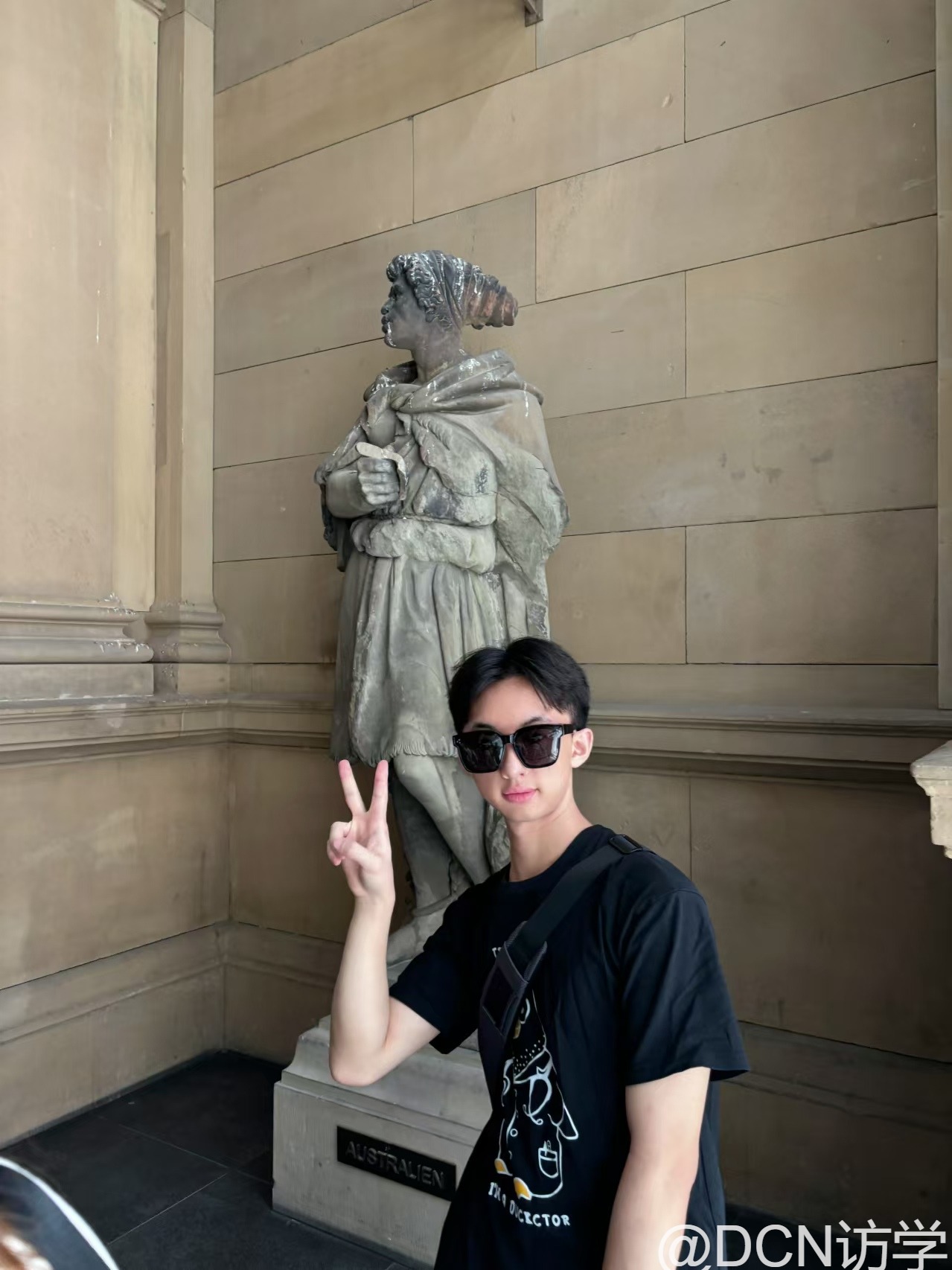
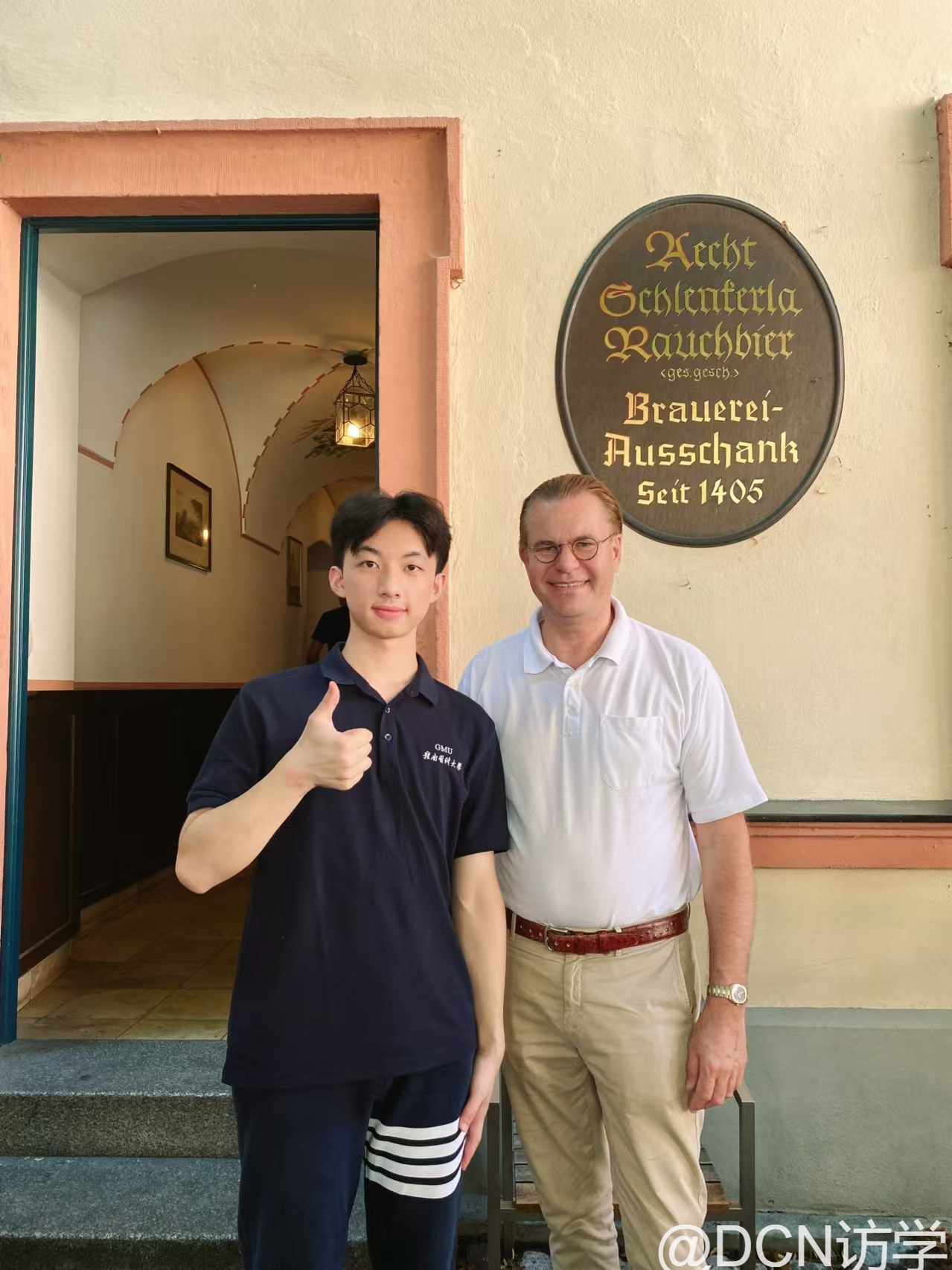
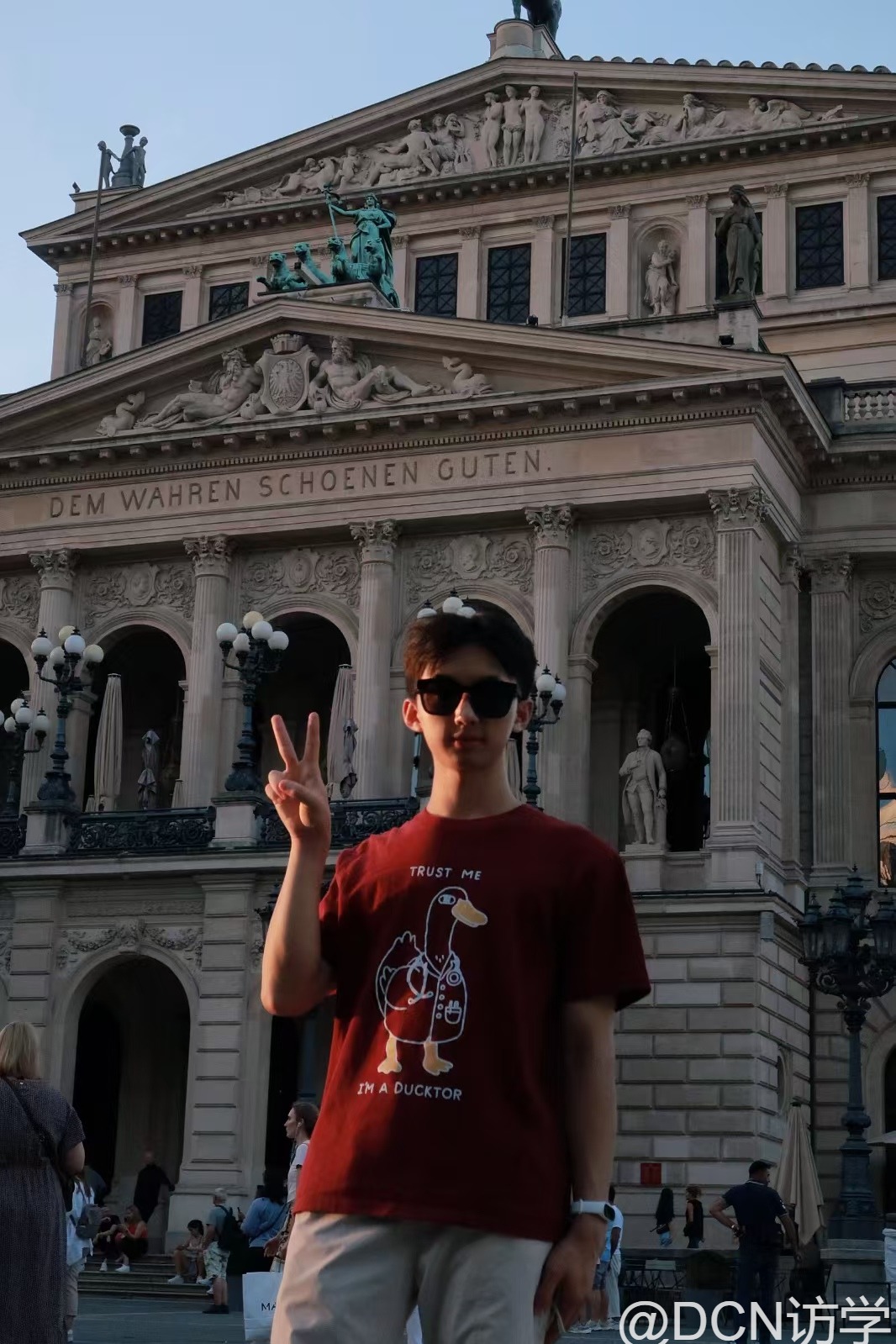
- Student Peng
During these three weeks in Germany, I embarked on a meaningful study tour filled with a thirst for knowledge and curiosity about the unknown. This experience not only broadened my horizons but also planted seeds of exploration and reflection in my heart, leaving me with a wealth of insights and emotions. I will now provide an overview of our study tour journey in chronological order.
Lufthansa Delay Incident:
On August 4th, I took a train to Shanghai to catch my flight. Although it wasn’t my first time flying, it was my first time flying abroad, and the flight was over 10 hours long, so I couldn’t help but feel a little nervous. Upon arriving at the airport, I encountered my first-ever flight delay, which progressed from a two-hour delay to a full cancellation. We had to reschedule for the next day’s flight at noon. As I stepped back onto the plane, I thought that this might be the first challenge of the trip, teaching us the importance of facing unexpected situations calmly and confidently to overcome crises effectively.
Frankfurt Experience:
During the first week in Frankfurt, we visited the University of Frankfurt and its affiliated hospital, the Frankfurt Money Museum, and the Frankfurt Stock Exchange. At the University of Frankfurt, we experienced the rich academic atmosphere and the sense of freedom on campus. At its affiliated hospital, we were impressed by the comprehensive facilities and the ample hands-on opportunities for medical students. The visits to the Money Museum and Frankfurt Stock Exchange highlighted the city’s role as one of Europe’s financial hubs and the headquarters of the Eurozone.
Heidelberg Visit:
On the second day of our trip, we headed to Heidelberg. In the morning, we visited the Heidelberg Medical School, where a professor from Heidelberg University gave us a lecture. Although the lecture was in English, and I didn’t fully understand everything, I could sense from her words the long history of Heidelberg, the university’s impressive research achievements, and the development of its medical school. After the tour, we visited Heidelberg's old town. After having lunch on our own, we started our tour of the old town, led by an elderly lady who specialized in Russian literature. She passionately introduced us to the towering cathedrals and cozy old pubs, describing them with ease and flow. We were then free to explore, and my friends and I visited Heidelberg Castle. Perched atop a cliff, the castle looked majestic from afar. Up close, it felt as though we had traveled back in time, allowing us to experience medieval history firsthand.
Tour of Cologne Cathedral:
On the Saturday of the first week, we didn’t have any scheduled activities, so we decided to visit the Cologne Cathedral. After a two-hour high-speed train ride, we arrived in Cologne and had lunch at a small pub. Inside, there was a TV broadcasting a second-division football match, and every time a goal was scored, the crowd cheered, giving us a real taste of Germany’s football culture. After lunch, we toured Cologne Cathedral. Its Gothic spires soared into the sky, and the intricate carvings and black-and-white exterior marked it as one of the most iconic medieval Gothic cathedrals in Europe, often referred to as “the closest place to God.” Inside, the colorful stained glass, towering nave, and exquisite murals reflected the wealth and authority of the Church during that time.
Nuremberg Study Week:
During the second week in Nuremberg, we visited Nuremberg University, the Siemens Medical Museum, Bamberg Psychiatric Hospital, and attended several medical-related courses. The campus of Nuremberg University is scattered throughout the city, creating a blend of learning and living, where students and citizens coexist in a harmonious urban landscape. In the classroom, I felt the freedom and openness of foreign education. After each section of her lecture, Professor Bisan would always ask us, “Do you have any questions?” After visiting the molecular materials laboratory at Nuremberg University, I truly understood what integration of academia and industry means.
Conclusion:
During these three weeks in Germany, I was exposed to a different world—one that differs greatly from China in terms of food, transportation, climate, and more. This was also a study tour that helped strengthen the spirit of mutual support and teamwork among our group members.
--廖同学
The three-week study tour in Germany was filled with experiences that highlighted the country's commitment to humanistic care. From the moment I stepped onto this land rich in history and culture, I was touched by the warmth and care that seemed to permeate every aspect of life. From the thoughtful facilities for vulnerable groups on the streets to the equal and respectful interactions between teachers and students on campus, every corner of Germany seemed to convey respect and care for people. This study tour not only allowed us to experience Germany's natural beauty and advanced technology but also gave us a deep understanding of how humanistic care is alive and well in this country. Like a guiding light, it illuminated my understanding and pursuit of the beauty of humanity.
During a sharing session about life and work in Germany, we learned from PhD graduates who had lived and worked in Germany for many years that the country offers a very generous vacation system. Employees are entitled to at least 20 paid vacation days each year, with many companies providing even more. This ensures that workers have ample time to relax, spend time with family, and pursue personal interests. Work is not the entirety of life, and vacation time allows employees to step back from their busy schedules, reflect on their lives, and achieve a balance between work and personal life. Public holidays, determined by each federal state, also reflect this concern for employee well-being, allowing people to take a break from work pressures and engage in celebrations or gather with friends and family to strengthen social bonds.
During our three weeks in Germany, we experienced firsthand how widespread closures of supermarkets and restaurants during holidays could be. While this caused some inconvenience, it underscored the importance Germans place on balancing work with leisure and enriching their spiritual lives.
Germany’s vacation policies clearly reflect a commitment to humanistic care, providing strong support for the well-being and development of employees. The sick leave system is also deeply humane. When employees fall ill, they can receive their full salary for the first six weeks and are covered by health insurance afterward. This ensures that workers can recover without worrying about financial burdens. In addition, maternity leave and sick leave to care for children demonstrate Germany’s respect for family values and support for employees' family responsibilities. Pregnant and postpartum women receive ample rest and care, while employees with sick children can take time off to look after them, reflecting a culture that respects both family and work.
One day while riding the bus in Frankfurt, I noticed that the vehicle tilted slightly as it pulled up to the stop. Curious, I wondered about the purpose of this feature.
After some online research and personal observations, I learned that public buses in Germany are equipped with air pressure systems that allow them to tilt, making it easier for elderly passengers with wheelchairs or parents with strollers to board. German public transportation, including buses, subways, and trains, reserves enough space for wheelchairs and strollers at boarding areas and even provides foldable seats for companions. The buttons in these areas are placed at an accessible height for those in wheelchairs.
These thoughtful designs for vulnerable groups deeply moved me. My grandmother has been bedridden for years and relies on a wheelchair, so I have personally experienced the challenges of using a wheelchair in China. Steep ramps, sidewalks occupied by bicycles, bumpy roads, and stairs that require several people to lift the wheelchair—these obstacles make outings difficult for my family and nearly impossible for my grandmother. Seeing the well-considered designs in Germany, I couldn't help but admire the engineers for their compassion and attention to the needs of vulnerable groups. These public facilities allow wheelchair users to enjoy barrier-free travel. I also wondered if similar facilities in China could allow my grandmother to experience more of the world.
I was also impressed by the abundance of accessible ramps throughout Germany. Having cared for my grandmother, I am all too familiar with the shortcomings of accessible ramps in China, where narrow, steep ramps make it difficult for wheelchair users or their helpers to navigate. In contrast, Germany’s ramps are long and gentle, providing enough space at turns for wheelchairs to maneuver comfortably. The accessible ramp in the lobby of Frankfurt University Hospital, for example, occupied nearly a quarter of the lobby space to ensure a smooth and comfortable experience.
Additionally, I noticed accessible bathrooms, elevators, mother-and-baby rooms, and auditory signals at traffic lights in streets, malls, and stations. Although China has made significant progress in this area in recent years, the level of detail and the widespread availability of such facilities in Germany exemplify the country’s humanistic care, which is something we can learn from and promote.
Inclusiveness is the foundation of Germany’s beautiful diversity. Throughout our study tour, we observed the harmonious coexistence of people from different cultural backgrounds. Immigrants from all over the world bring their unique cultures, customs, and traditions to Germany, and the country welcomes them with open arms, providing them with space to live and opportunities to develop. Whether in bustling city streets or quiet rural towns, we saw people of different skin colors and languages living together.
Equality is the force that guarantees this diversity. In Germany, regardless of gender, race, or religious belief, everyone enjoys equal rights and opportunities. In schools, students from different backgrounds learn together, respecting each other’s differences. In the workplace, women and men have equal promotion opportunities, and minorities can rise to prominence based on their abilities. Among our professors, there were female scholars from various countries, including a Palestinian PhD and a Moroccan doctor. Their achievements in Germany are a testament to the country’s equal social and academic environment.
It is inclusiveness and equality that make Germany’s diversity possible. This diversity not only enriches German society but also drives the country's development. Different ideas converge and collide here, sparking innovation. Different cultures learn from each other, promoting the progress of art and technology. Germany showcases the harmonious coexistence of inclusiveness, equality, and diversity through its actions.
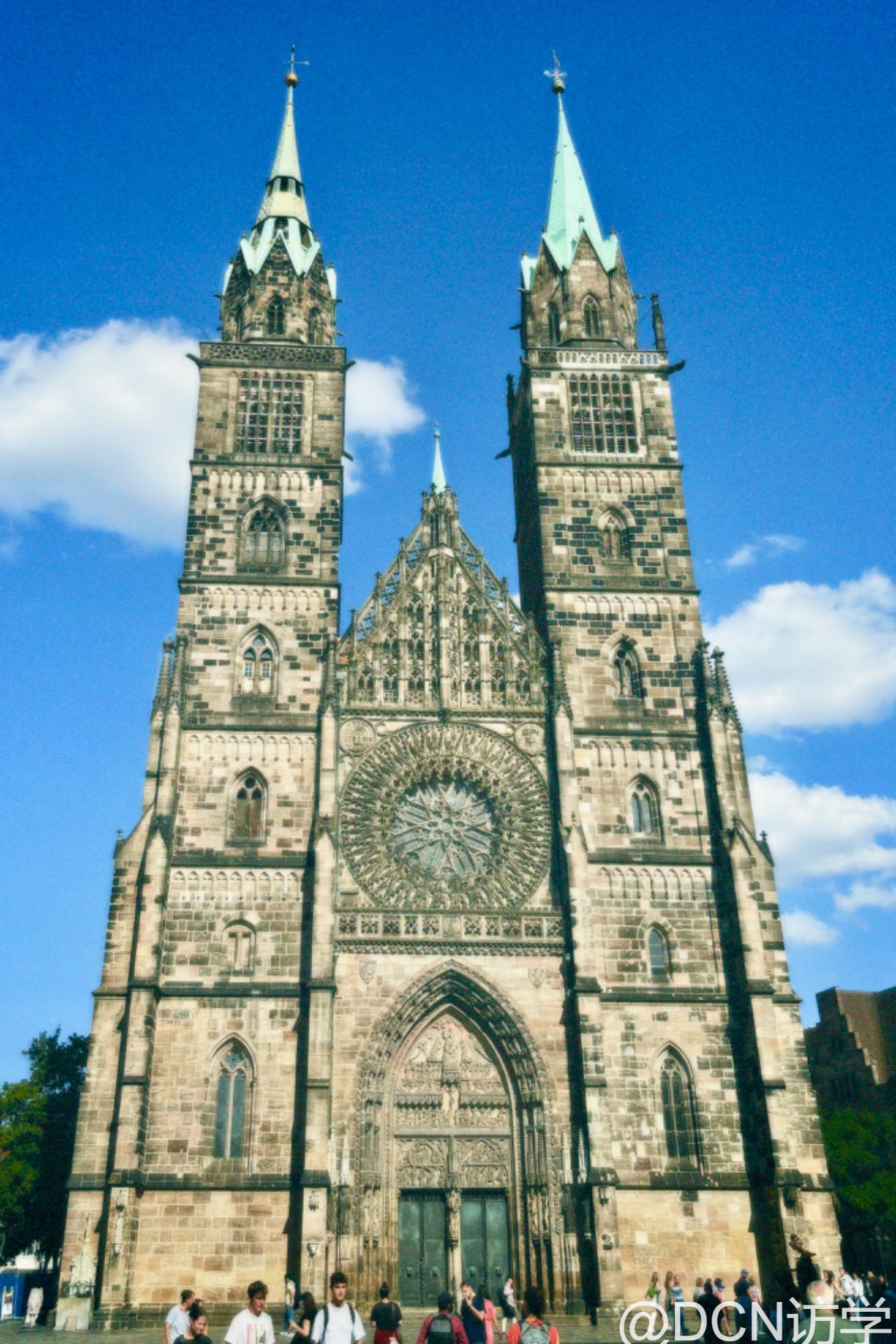
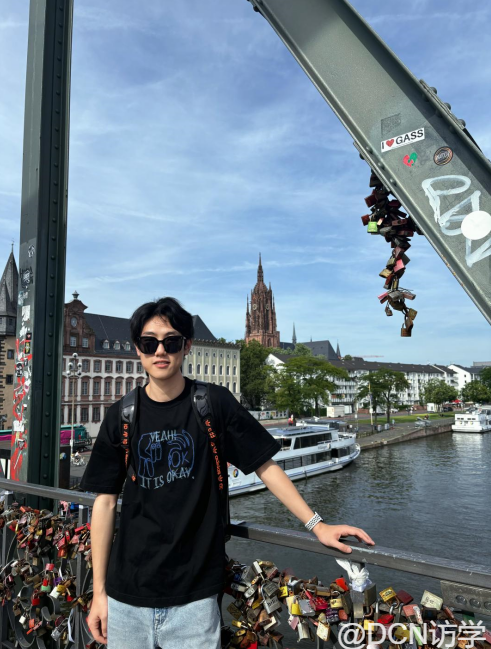
---The story will continue---
*This is the English translation. In case of any discrepancies, the Chinese version shall prevail.
